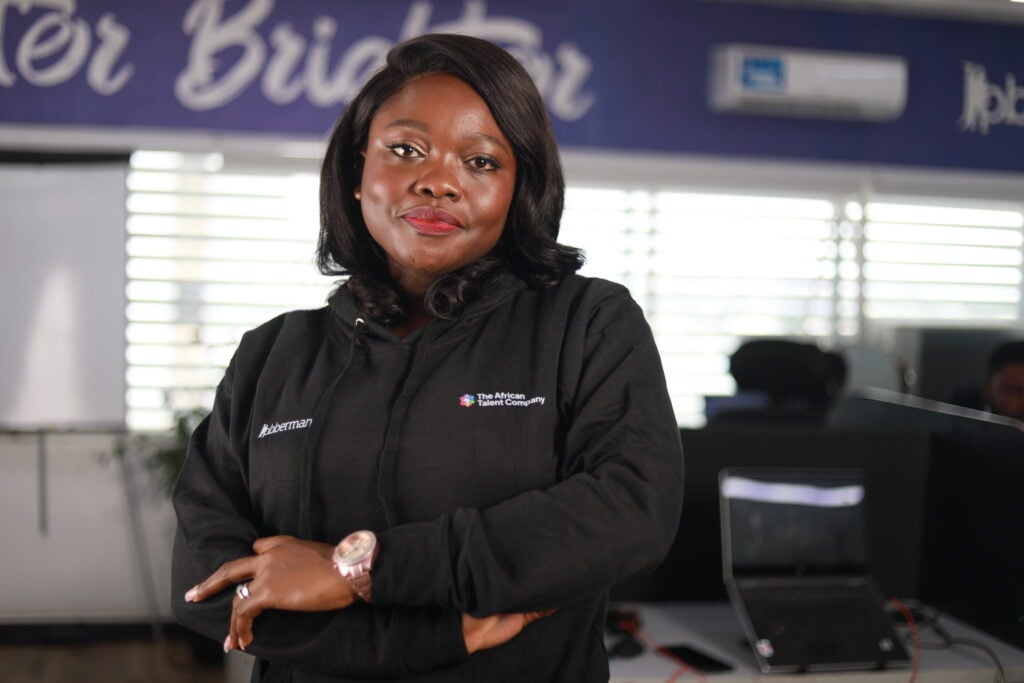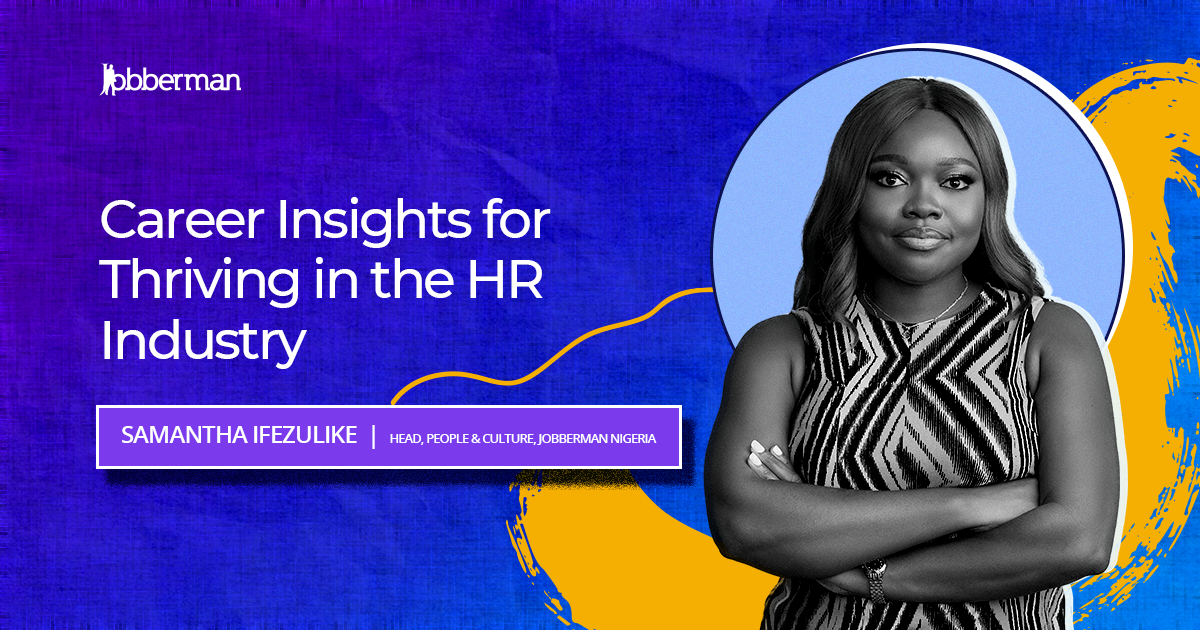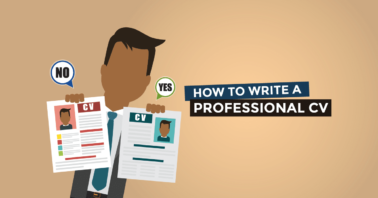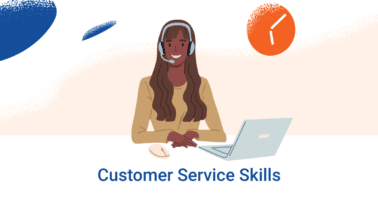In the ever-evolving landscape of careers and professional growth, one invaluable resource often goes unnoticed: the wisdom and experience of seasoned professionals. These individuals, who have dedicated years to mastering their craft and navigating the intricate paths of success, possess knowledge that can guide aspiring professionals.
Particularly in Human Resources (HR), a.k.a People and Culture, where effective personnel management is paramount, the insights and lessons shared by senior HR professionals can shape not only the trajectory of a career but also the future of an entire organisation. Join us as we embark on a journey to uncover the lessons gleaned from the career of a seasoned HR professional, Samantha Ifezulike.
Samantha Ifezulike has vast experience in recruitment, learning and development, HR strategy, performance management and change management. She currently heads the People and Culture team at Jobberman. In this article, she walks us through her career and shares tips on how to get ahead in the HR industry.
How did you get into HR?
“I fell in love with HR during my National Youth Service (NYSC). I started out wanting to be a diplomat; since my first degree was in International Relations, it made sense”.
“I started as a generalist in the Learning & Development (L&D) and HR departments at Deloitte, where I learnt a world of experiences. It allowed me to understand a large facet of what made the business tick. It was invaluable knowledge”.
“So after the NYSC trainee period, I went through an interview/recruitment process and was retained. I became a full staff at Deloitte”.
How did your career progress from there?
“So, at that time, I was shuffling between the HR and L&D departments; I was more a generalist, assisting and doing everything from recruitment and candidate assessments to people management”.
What did that experience teach you?
I learnt very early in my career that as an HR professional If you’re not people-oriented, you will struggle a lot. You have to be able to manage the expectations of the business and the people.
“You are the go-between for employees and the management of the business. Hence, you need to manage both sides well”.

How did your career progress from there?
“After a while, I became interested in accreditations that could improve my standing as an HR professional. So I registered and took those examinations as a stepping stone to being a full-time vetted HR professional”.
“I looked into getting a CIPD (Chartered Institute of Personnel and Development Certificate) accreditation. I found an option that could get me that and help me further my education. This was when I decided to take a break from work to get a master’s degree in International Human Resource Management at the University of Portsmouth, England”.
I did that for a year. And when I was done, I returned to Nigeria, and luckily, there was an opening for me back at Deloitte. I joined the Human Resources team as a Senior Talent Acquisition and Mobility Specialist.
“My talents for managing people and mobility processes were put to good use, and I thoroughly enjoyed it. However, after I decided that I needed a new challenge”,
Any nuggets from that experience you wish to share?
“It’s essential to commit to continuous learning, accreditations, and certification, as you progress in your career. They give you a leg up in the job market. You can also use the knowledge you gain in your work. You can scrutinise systems and processes and look for ways to improve or make them more efficient”.
“Another thing that helped me was mentorship. I had mentorship, and this made me very focused and determined. I always had my end goal in sight”.
“Your mentors do not have to only be in your industry; even though that is essential, you can have mentors who show you the ropes of doing business in general. I had mentors within my industry and beyond. They helped me set long-term goals. With my goals in sight, I knew I wanted a new challenge. This was when I decided to leave Deloitte to join a Tech Startup, Connected Analytics (ThankUCash), as the HR manager”.
“I also worked as a consultant for a while. I worked with a few organisations, doing HR consulting to help them improve their systems, policies and processes. Finding other avenues to monetise your knowledge and talents can also be rewarding”.
“After a while, it was time again for a new challenge. This was when I decided to join Jobberman as the head of People and Culture”.
“An aspiring HR professional must have determination, work discipline, and zeal for continuous learning”.
Do you find your role challenging?
“I am challenged because I get to innovate continually; I’m constantly providing solutions to the business as regards people. Jobberman has a wide pool of talents, and managing can be demanding but rewarding”.

What are some things aspiring HR professionals can expect to come across?
“As an HR professional, you need to make sure that your people are ok and then that the business is ok”.
“You essentially become what you call a critical analyst. So you begin to question certain things, specific policies. What’s the essence of this policy? Break down policies and how they affect people. What is a more effective way of getting things done that other people have not thought about?”
“When you’re trying to get the best out of your people, there are several questions you need to answer also, such as, Are you coaching them? Are you giving them mentoring? Are you training them? Are you giving them the right tools to use?”
“You will also be confronted with HR data analysis or HR reporting. How do you interact with the numbers that you have? How do you look at the trends in terms of retention and resignation? How do you look at the gender? You could look at the employee base and find out they have more females than males. Has this always been the trend? How do we solve this?”
“Also, how do we retain our best talents? What data do we use to influence our decisions? What are the compensation benchmarks in that industry? Are we meeting them? What can the business afford? These are all questions you need to answer as you progress in your career”.
Last bit of wisdom for aspiring professionals
“If you are looking for a career in HR, you need to be able to deal with people. You need to be dynamic and adaptable. This is something that helped me”.
“And I would say communication and listening skills are also essential in HR. As I said, you’re the go-between for the business and its people, so you need to listen to the pain points on both sides and develop ways to solve them”.
Final Thoughts
In a world where careers are constantly in flux, the insights gained from seasoned professionals can be a hidden gem for aspiring professionals seeking guidance. Samantha’s story underscores the importance of being people-oriented and skilled at managing the expectations of both employees and management. Samantha’s career trajectory showcases the versatility of HR professionals, demonstrating that opportunities for growth and impact exist beyond traditional organisational roles.
Aspiring HR professionals can expect many challenges, from analysing HR data and policies to optimising talent development and retention strategies. Adapting, thinking critically, and utilising effective communication and listening skills are essential in navigating these challenges successfully.
The path to success for aspiring professionals in HR lies in being people-oriented, continuously learning, and embracing the role of a critical analyst and problem solver.





